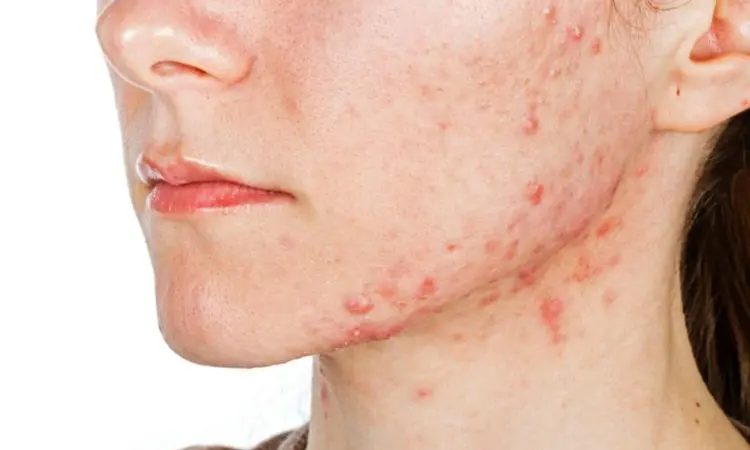- Home
- Medical news & Guidelines
- Anesthesiology
- Cardiology and CTVS
- Critical Care
- Dentistry
- Dermatology
- Diabetes and Endocrinology
- ENT
- Gastroenterology
- Medicine
- Nephrology
- Neurology
- Obstretics-Gynaecology
- Oncology
- Ophthalmology
- Orthopaedics
- Pediatrics-Neonatology
- Psychiatry
- Pulmonology
- Radiology
- Surgery
- Urology
- Laboratory Medicine
- Diet
- Nursing
- Paramedical
- Physiotherapy
- Health news
- Fact Check
- Bone Health Fact Check
- Brain Health Fact Check
- Cancer Related Fact Check
- Child Care Fact Check
- Dental and oral health fact check
- Diabetes and metabolic health fact check
- Diet and Nutrition Fact Check
- Eye and ENT Care Fact Check
- Fitness fact check
- Gut health fact check
- Heart health fact check
- Kidney health fact check
- Medical education fact check
- Men's health fact check
- Respiratory fact check
- Skin and hair care fact check
- Vaccine and Immunization fact check
- Women's health fact check
- AYUSH
- State News
- Andaman and Nicobar Islands
- Andhra Pradesh
- Arunachal Pradesh
- Assam
- Bihar
- Chandigarh
- Chattisgarh
- Dadra and Nagar Haveli
- Daman and Diu
- Delhi
- Goa
- Gujarat
- Haryana
- Himachal Pradesh
- Jammu & Kashmir
- Jharkhand
- Karnataka
- Kerala
- Ladakh
- Lakshadweep
- Madhya Pradesh
- Maharashtra
- Manipur
- Meghalaya
- Mizoram
- Nagaland
- Odisha
- Puducherry
- Punjab
- Rajasthan
- Sikkim
- Tamil Nadu
- Telangana
- Tripura
- Uttar Pradesh
- Uttrakhand
- West Bengal
- Medical Education
- Industry
TNF inhibitors effective for treating refractory acne but also have potential to induce acne occurrence: JAMA

Boston, MA: Results from a systematic review have highlighted the association between tumour necrosis factor- α inhibitors (TNFis) and acne, stating that TNFis can be effective for treating refractory acne but also have the potential to induce acne. The findings were featured in the journal JAMA Dermatology on March 17, 2023.
Tumour necrosis factor–α inhibitors are approved for treating several inflammatory diseases and are sometimes used off-label to treat severe acne forms that are refractory to conventional therapies. However, TNFis use can also be followed by acne occurrence, indicating an association between TNFis and acne. A systematic review of most of the literature comprising case reports and series have not been conducted.
Against the above background, Aaron Gabriel W. Sandoval, Harvard Medical School, Boston, Massachusetts, and colleagues aimed to characterize the clinical presentations, demographic characteristics, treatments, and outcomes of patients receiving TNFis for acne treatment and patients who develop acne after treatment of other conditions with TNFis.
The investigators addressed the question, what is the role of tumour necrosis factor–α inhibitors in treating and inducing acne?
For this purpose, the investigators performed a systematic literature review and reported per the PRISMA guidelines. Online databases were searched from inception through October 17, 2022. They included studies reported on patients of any age or sex who received TNFis whose treatment was followed by the occurrence or resolution of acne.
The review included 53 studies comprising 64 patients who received TNFis for acne treatment (n=47) or experienced acne following treatment with TNFis for a different condition (n = 17). The TNFis used included infliximab, adalimumab, and etanercept.
The authors reported the following findings:
- Most of the 47 patients treated for acne with TNFis had previously received antibiotics (66.0%) or isotretinoin (68.1%).
- Most (93.6%) experienced partial improvement (53.2%) or clearance (40.4%), with very few adverse effects reported (6.4%).
- Acne manifested as part of an inflammatory syndrome for 63.8% of patients.
- Among the 17 patients treated TNFis for a different condition followed by acne, only one patient (5.9%) reported a history of acne.
- Therapy with TNFis was either discontinued (47.1%) or altered (35.3%) in most patients due to acne occurrence, typically with improvement in symptoms.
"The results of the systematic review indicate that TNFis can be effective for refractory acne treatment but can also be linked with acme occurrence in certain conditions," the researchers wrote.
"Further studies elucidating TNF's role in inducing and treating acne could yield insight into off-label TNFi use and acne pathogenesis, potentially guiding the clinical care of acne patients treated or induced by TNFis," they conclude.
Reference:
Sandoval AGW, Vaughn LT, Huang JT, Barbieri JS. Role of Tumor Necrosis Factor–α Inhibitors in the Treatment and Occurrence of Acne: A Systematic Review. JAMA Dermatol. Published online March 17, 2023. doi:10.1001/jamadermatol.2023.0269
Dr Kamal Kant Kohli-MBBS, DTCD- a chest specialist with more than 30 years of practice and a flair for writing clinical articles, Dr Kamal Kant Kohli joined Medical Dialogues as a Chief Editor of Medical News. Besides writing articles, as an editor, he proofreads and verifies all the medical content published on Medical Dialogues including those coming from journals, studies,medical conferences,guidelines etc. Email: drkohli@medicaldialogues.in. Contact no. 011-43720751


